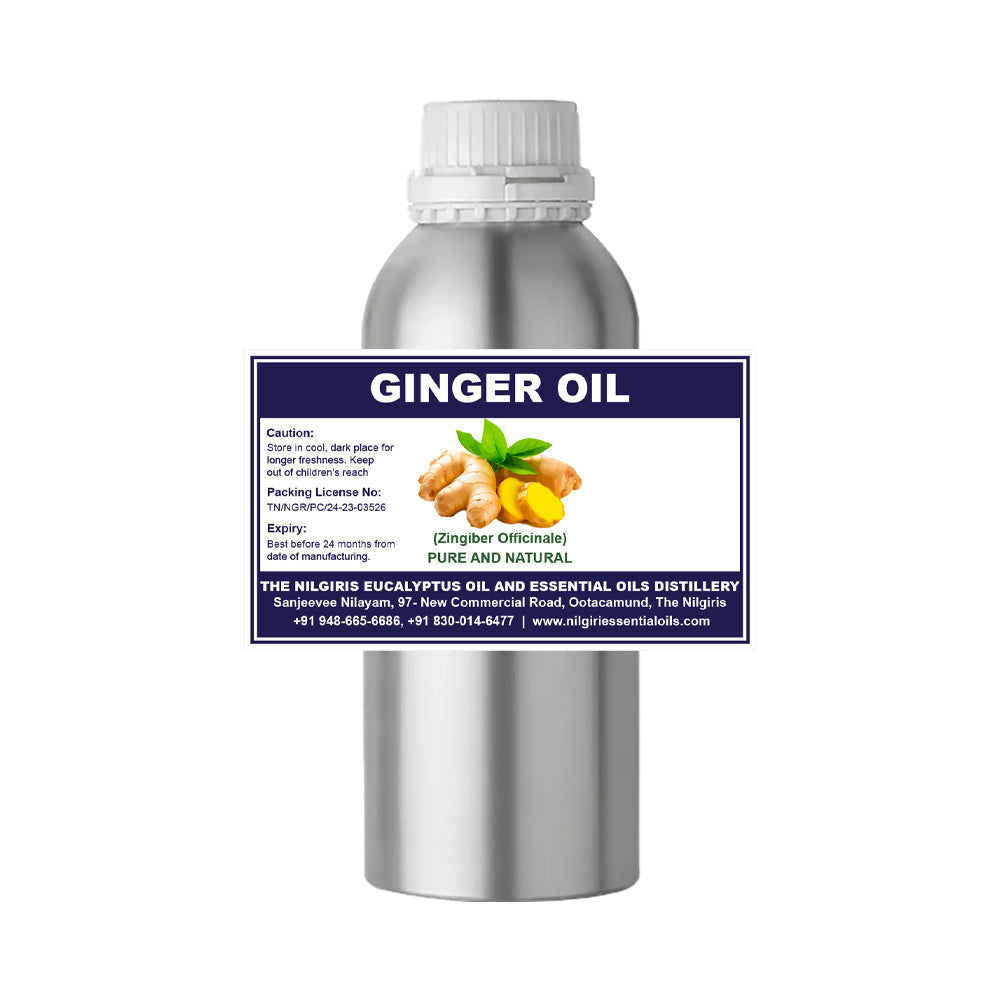Description
Ginger oil is extracted from the rhizome of the ginger plant, scientifically known as Zingiber officinale, through steam distillation or cold pressing. It has a warm, spicy, and earthy aroma with hints of citrus. Ginger oil is rich in bioactive compounds such as gingerol, shogaol, and zingerone, which contribute to its therapeutic properties.
Benefits:
- Digestive Aid: Ginger oil is well-known for its digestive properties. It can help alleviate nausea, indigestion, bloating, and stomach discomfort. It stimulates digestion, promotes the secretion of digestive enzymes, and reduces gastrointestinal irritation.
- Anti-inflammatory: Ginger oil has potent anti-inflammatory properties that can help reduce inflammation and pain associated with conditions such as arthritis, muscle soreness, and menstrual cramps. It inhibits the production of inflammatory cytokines and mediators.
- Immune Support: Ginger oil has immune-boosting properties that can help strengthen the immune system and reduce the risk of infections. It has antimicrobial and antiviral effects, making it effective against bacteria and viruses.
- Relief from Respiratory Issues: Ginger oil can help relieve respiratory issues such as coughs, colds, and congestion. Its warming and expectorant properties help loosen mucus, soothe sore throats, and promote easier breathing.
- Mood Enhancement: The warm and spicy aroma of ginger oil has stimulating and uplifting effects on the mind and body. It can help reduce stress, fatigue, and mental fog, promoting clarity, focus, and alertness.
How to Use:
- Aromatherapy: Diffuse ginger oil in a diffuser to create a warm and invigorating atmosphere. Inhale deeply to stimulate the senses, reduce stress, and enhance mental clarity. It blends well with citrus oils like lemon and orange.
- Topical Application: Dilute ginger oil with a carrier oil such as coconut oil or jojoba oil and apply it topically to the skin. Massage it into areas of discomfort or tension for pain relief and relaxation. Ginger oil can also be added to bathwater for a soothing and aromatic bath.
- Inhalation: Add a few drops of ginger oil to a bowl of hot water and inhale the steam to relieve respiratory congestion and promote respiratory health. You can also inhale ginger oil vapors directly from the bottle.
- Massage: Mix ginger oil with a carrier oil and use it for a warming and therapeutic massage. Focus on areas of soreness, stiffness, or tension for pain relief and relaxation.
- Cooking: Ginger oil can be used in culinary applications to add flavor and aroma to dishes. Add a drop or two of ginger oil to stir-fries, soups, sauces, marinades, and baked goods for a spicy and aromatic kick.
Always perform a patch test before using any essential oils or carrier oils on your skin to check for any allergic reactions. Additionally, pregnant or nursing women and those with certain medical conditions should consult a healthcare professional before using essential oils and carrier oils.
Bottle Size & Packing

30 ml
Glass

30 ml
Aluminium

150 ml to 1 Litre
Aluminium

5 Litres / Kgs
HDPE Can

35 Litres / Kgs
HDPE Can

200 Litres / 180 Kgs
GI Barrel


